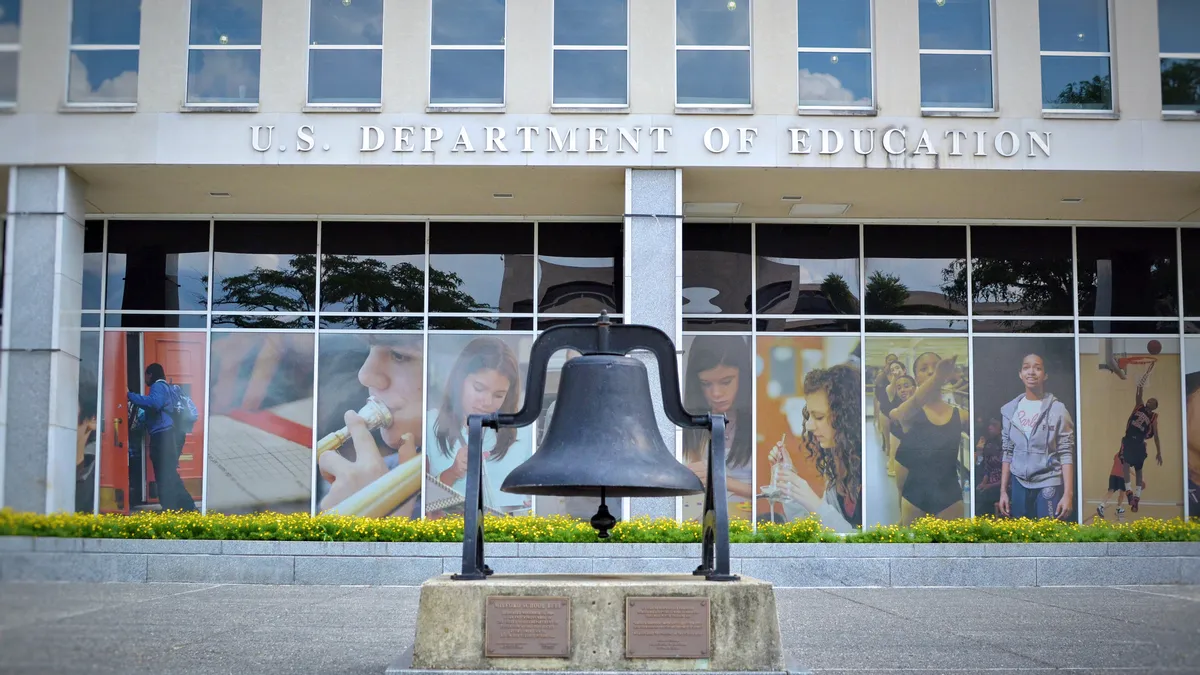Dive Brief:
- The U.S. Department of Education for about a decade failed to properly report to Congress the findings of policy experiments at colleges, such as testing federal financial aid for incarcerated students, an agency watchdog found.
- The Education Department is legally required to share with congressional committees at least every two years the results of what are known as Experimental Sites Initiatives. But the department has not published a comprehensive summary since 2010-11, the Office of the Inspector General said in a report dated Monday.
- Officials from the Office of Federal Student Aid, which runs the experiments, said in response to OIG’s findings that these reports often offered little insight. However, the agency said it will draft a synopsis of all the experiments it has missed by the end of the year.
Dive Insight:
The Education Department solicits colleges to participate in periodic trials that waive statutory or regulatory restrictions. This enables the department to try out otherwise prohibited policies that could have some success.
Two experiments are active, according to OIG.
One is Second Chance Pell, which provides federal financial aid to incarcerated students. The other is the Federal Work Study initiative, which in part is attempting to gauge whether colleges can cultivate closer relationships with private-sector employers by cutting through the red tape of institutions paying Federal Work Study wages to students who work for those companies.
But 15 different experiments have concluded since the Education Department last developed a broad report on these types of tests, OIG said. The last report the department produced detailed ongoing and finished trials from 2003 through 2012.
It did publish two reports in 2020, but they were not thorough enough to comply with the federal government’s disclosure requirements, OIG said.
The watchdog office said department officials have not prioritized these mandates and have not been held accountable for their failures to do so. Education Department staff attributed the gaps to “resource limitations, restructurings, and inaction of senior managers.”
OIG said it could not meet with officials who formerly led these initiatives, as they have since left the department.
However, the current director of these experiments told OIG that the Education Department believed it could issue a report on each individual trial to comply with the requirements.
This was to ensure the department’s “limited resources were devoted to providing Congress and the public with the most policy-relevant information possible, which at that time was related to the Second Chance Pell experiment as Congress debated whether to reinstate Pell Grant eligibility for incarcerated students,” OIG said in its report.
The Biden administration has since finalized regulations that allow incarcerated students access to Pell Grants, which are considered a proxy for low- and moderate-income status.
Richard Cordray, chief operating officer of Federal Student Aid, said in a letter included in the OIG report that the department will prepare an exhaustive summary of ongoing and finished experiments by the end of December. It will also craft individualized reports on the results of each one.
Cordray also said the office will reorganize staff to guarantee these reports would be produced on time in the future.















